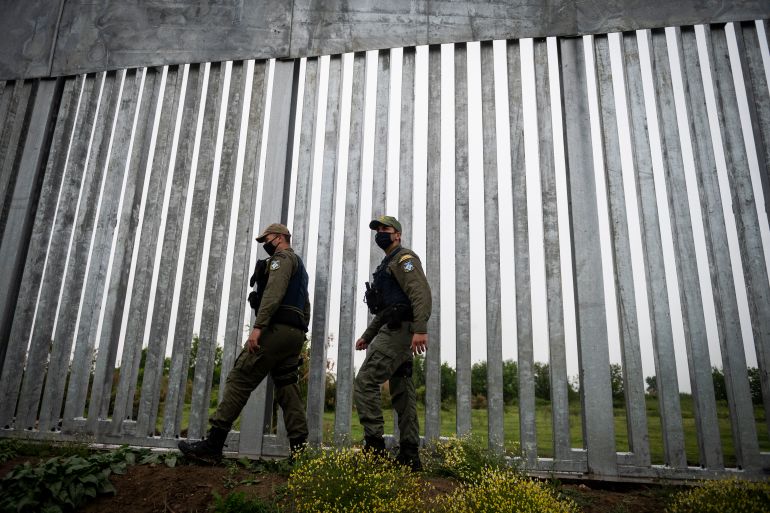Greece to triple length of steel wall along border with Turkey
Athens seeks EU funds to extend its 40km steel border wall to 120km with construction work due to start later this year.

Greece has announced its plan to triple the length of a wall along the country’s border with Turkey, seeking European Union financial support for the additional construction.
Notis Mitarachi, the migration affairs minister, said the steel wall would be extended from 40 to 120km (25 to 75 miles), with construction work due to start later this year.
Keep reading
list of 3 itemsConcrete walls and drones: Greek plans for refugee camps decried
Turkey’s Erdogan says he will no longer talk to Greek PM
“It is a government decision to extend the border wall further and we have requested European funding,” Mitarachi said, speaking in an interview on Sunday with a radio station near Athens.
The minister posted the audio of the interview on social media on Monday. He gave no details on the projected cost of the project.
Greece has accused neighbour and fellow-NATO ally Turkey of “instrumentalising” migration as a means of exerting pressure on EU countries.
That is an assertion rejected by Ankara, which says it has shouldered a disproportionately heavy burden, hosting about four million refugees, most of whom fled the civil war in neighbouring Syria.
Border wall funds
Last year, 12 countries, including Greece, requested EU funding for border walls, which are currently financed by national budgets.
The EU Commission does not currently pay for wall construction at its external borders, arguing that it would drain funds from other migration-related activities, including financing the EU border protection agency, Frontex.
Greece and Turkey have strained relations over a slew of issues, including competing maritime boundary claims that affect energy exploration rights in the eastern Mediterranean.
Tensions flared in 2020 over exploratory drilling rights in areas in the Mediterranean Sea where Greece and Cyprus claim their own exclusive economic zone, leading to a naval standoff.
Last week, Turkish President Recep Tayyip Erdogan said he would stop talking to Greek Prime Minister Kyriakos Mitsotakis and cancel a key meeting between their two governments, accusing the Greek leader of antagonising Turkey.